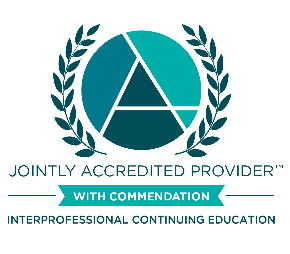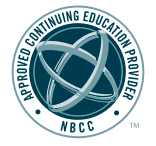A Resource for Healthcare and Social Services Professionals
December 14, 2023
8:00 am–8:30 am ET
One of the first steps in ensuring people receive appropriate interventions and referral to treatment for alcohol use disorder or risky drinking behaviors is to effectively identify these high-risk individuals. This training will discuss the rationale for screening patients for alcohol use and identify validated screening tools. We will also review how to administer these tools in the clinical setting and provide strategies for how to engage patients in shared discussions surrounding their alcohol use.
Via Zoom
This training will review the prevalence of alcohol use in the US and screening modalities that can help identify alcohol use. We will highlight validated tools for screening patients for alcohol use and discuss how to discuss these screening results with patients through a patient-centered approach.
To ensure individuals receive appropriate treatment for their alcohol use disorder (AUD) or risky drinking behaviors, it is critical that we can first identify these high-risk patients. Many members of the healthcare team can play a role in assessing and supporting patients’ alcohol use. By reviewing validated tools, we will be better able to recognize opportunities to screen patients and the rationale behind them.
Prescribers, nurses, social workers, and other clinical and non-clinical staff.
Dawn Williamson is an Advanced Practice Nurse for Addictions Consultation in the Emergency Department at the Massachusetts General Hospital. Ms. Williamson responds to the treatment needs of both individuals and families with addiction and mental health issues in the emergency setting. As part of her responsibilities, she provides training and supervision of the clinical staff, develops and implements policies relating to patient care, and provides assistance with establishing treatment plans.
Ms. Williamson received her BSN from the University of Massachusetts and her Master of Science in Adult Mental Health Nursing from Northeastern University. She is Board Certified as a Clinical Specialist in Adult Psychiatric and Mental Health Nursing. She is also a Certified Advanced Practice Addictions Registered Nurse. With twenty-eight years of nursing experience she has practiced in both the public and private sector prior to coming to The Massachusetts General Hospital.
Ms. Williamson is a member of the Emergency Nurses Association (ENA) and helped author position statements for the association on Medical Evaluation of Psychiatric Patients and on Substance Abuse and the Emergency Care Setting. She is a member of the ENA’s national committee for Emergency Department Psychiatric Care. She also belongs to the International Nurses Society on Addictions. She has given numerous presentations on addiction treatment. She authored the chapter on alcohol intoxication and withdrawal states for Sheehy’s Manual of Emergency Care, as well as the module on substance addiction for Mosby’s eLearning course, Handling Psychiatric Emergencies.
Following this training, participants will have the knowledge to:
Boston Medical Center Grayken Center for Addiction TTA, Massachusetts Department of Public Health, Bureau of Substance Addiction Services (DPH/BSAS)
Funding for out of state attendees is provided by the Opioid Response Network (ORN).
Funding for this initiative was made possible (in part) by grant no. 1H79TI083343 from SAMHSA. The views expressed in written conference materials or publications and by speakers and moderators do not necessarily reflect the official policies of the Department of Health and Human Services; nor does mention of trade names, commercial practices, or organizations imply endorsement by the U.S. Government.
REQUIREMENTS for credit
Please note this policy is strictly enforced for accreditation purposes. Participants will forfeit collection of credit and certificates of completion if more than 10 minutes of the training is missed.
CME
 In support of improving patient care, Boston University Chobanian & Avedisian School of Medicine is jointly accredited by the Accreditation Council for Continuing Medical Education (ACCME), the Accreditation Council for Pharmacy Education (ACPE), and the American Nurses Credentialing Center (ANCC), to provide continuing education for the healthcare team.
In support of improving patient care, Boston University Chobanian & Avedisian School of Medicine is jointly accredited by the Accreditation Council for Continuing Medical Education (ACCME), the Accreditation Council for Pharmacy Education (ACPE), and the American Nurses Credentialing Center (ANCC), to provide continuing education for the healthcare team.
Boston University Chobanian & Avedisian School of Medicine designates this live activity for a maximum of 0.50 AMA PRA Category 1 Credit(s)™. Physicians should claim only the credit commensurate with the extent of their participation in the activity.
Nursing
Boston Medical Center is approved as a provider of nursing continuing professional development by the American Nurses Association Massachusetts, an accredited approver by the American Nurses Credentialing Center’s Commission on Accreditation. Participants who complete and return the evaluation and stay for the entire session will be awarded 0.50 contact hours.
LMHC
 BMC Grayken Center of Addiction TTA has been approved by NBCC as an Approved Continuing Education Provider, ACEP No. 7188. Programs that do not qualify for NBCC credit are clearly identified. BMC Grayken Center of Addiction TTA is solely responsible for all aspects of the programs. For this program, 0.50 contact hours will be offered to participants who attend the training and complete the evaluation.
BMC Grayken Center of Addiction TTA has been approved by NBCC as an Approved Continuing Education Provider, ACEP No. 7188. Programs that do not qualify for NBCC credit are clearly identified. BMC Grayken Center of Addiction TTA is solely responsible for all aspects of the programs. For this program, 0.50 contact hours will be offered to participants who attend the training and complete the evaluation.
LADC/CADC & Recovery Coach
Grayken Center for Addiction TTA is approved to offer LADC/CADCs and recovery coaches who complete this course 0.50 general continuing education credits.
Disclaimer
Continuing education (CE) requirements vary by license and jurisdiction. When requesting continuing education credits, please ensure you are following the rules and regulations determined by the board regulating your license. Boston Medical Center Grayken Center for Addiction TTA does not oversee adherence to licensing requirements and regulations.